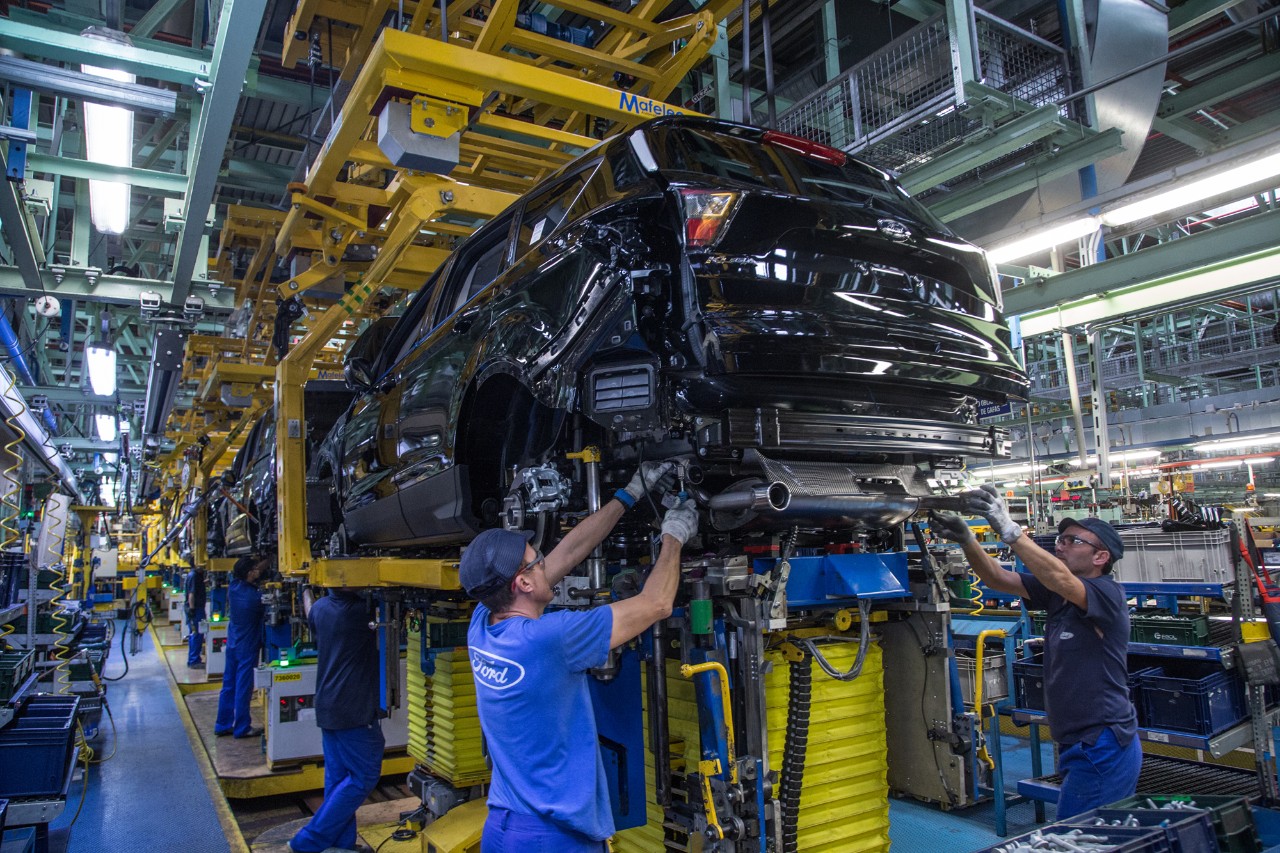ByteDance has publicly stated that “the company is exploring the sale of TikTok” is not factual
According to ByteDance’s official statement, recent reports about its exploration of selling TikTok are not true. ByteDance emphasizes that there are no plans to sell TikTok. This statement was released after US President Biden signed a bill involving the requirement for ByteDance to divest its US operations. TikTok’s CEO, Zhou Shouzi, has taken a firm stance, indicating that TikTok will remain in the market and will respond to this challenge through legal means.
Apple OpenELM goes completely open source, releasing four language models at once
On the AI code community Hugging Face, Apple recently published the OpenELM language model, announcing its full open-source availability. This series consists of four models with different parameter sizes, capable of running on end-devices. These models are based on 270 million, 450 million, 1.1 billion, and 3 billion parameters, can operate independently, and do not require cloud services. Apple provides pre-trained models, instruction-optimized models, model weights, evaluation tools, etc., marking Apple’s formal entry into the competition of open-source language models along with other tech firms like Google, Microsoft, and Samsung.
Recently, Tesla’s retraction of employment offers for the class of 2024 graduates has attracted wide attention. On various social media platforms, many graduates who were to become new members of Tesla shared their experiences. Reportedly, Tesla offered one month’s salary as compensation. At a time when spring hiring is concluding, these graduates are eagerly expressing their wish to secure positions at other companies. Rumors suggest that Tesla’s move affects the cancellation of all graduate positions, with every affected graduate receiving one month’s salary as compensation, although the company has not provided an official explanation. Looking back, Tesla’s CEO Elon Musk had already announced a major layoff in mid-April, hinting that more than 10% of the workforce would be cut. Considering the total number of Tesla employees worldwide, this ratio means that nearly 14,000 people are affected. According to Tesla’s employees in China, departments such as sales, delivery, and after-sales in the China region were the main casualties of the layoffs, with some departments facing layoff rates as high as 40%, and no future recruitment plans.
On the other hand, Baidu suddenly announced that its Baidu Encyclopedia App service will officially shut down on June 30, 2024. However, users can continue to use Baidu Encyclopedia services through the mini-program within the Baidu App. Baidu Encyclopedia has always been a content-rich, user-editable online encyclopedia covering a wide range of knowledge areas such as economics, culture, history, and more. Since its online debut in 2006, it has grown into China’s largest Chinese-language encyclopedia. According to statistics, the number of entries in Baidu Encyclopedia has exceeded 28 million, with more than 7.8 million users participating in editing. As an important domestic tool for information retrieval and knowledge sharing, Baidu Encyclopedia’s daily visits are enormous, reaching 400 million times per day. Therefore, the sudden announcement of the shutdown of the Baidu Encyclopedia App indeed left a profound impression. Just one day before the notice of the service closure, the App had been updated, fixing some bugs.
Safety concerns are equally attracting attention. Recently, a security report released by the privacy research organization Citizenlab revealed a significant issue, pointing out that several popular Chinese input method apps have serious security vulnerabilities. The report says that input method software from various manufacturers such as Huawei, Baidu, Honor, Xunfei, OPPO, Samsung, Tencent, Vivo, and Xiaomi all harbor risks. These vulnerabilities could be exploited by hackers to obtain users’ input content or to carry out further cyber surveillance and information theft, affecting users’ privacy and security. Shockingly, nearly a billion users are affected by this security flaw.
Some researchers have recently found that apart from third-party keyboard input method applications, the keyboard input methods pre-installed by three device manufacturers, Honor, OPPO, and Xiaomi, also have security vulnerabilities. It is noteworthy that these three manufacturers accounted for nearly 50% of the Chinese smartphone market in 2023. In addition, Samsung and Vivo also bundled input methods with the same issues, though they are not the default input methods for the devices. This vulnerability has been reported to the eight mobile keyboard input method manufacturers involved, and most have responded positively to the issue, promptly fixing the corresponding vulnerabilities. However, there are still some keyboard applications that have not addressed these issues.
Citizenlab reminds in the report that the intelligence agencies of the Five Eyes alliance have also exploited the security vulnerabilities of Chinese input methods to conduct widespread surveillance in the past. Considering that security flaws in input methods may lead to the leakage of personal financial data, account login information, and privacy, researchers advise users to promptly update applications and operating systems or switch to input method software that operates entirely locally to reduce privacy risks.
In a development related to labor contracts in the United States, the Federal Trade Commission (FTC) recently announced that the imposition of new non-compete clauses for all employees (including senior management) will no longer be allowed. Existing non-compete agreements that are in effect will continue to be valid for senior management who have signed them, while agreements for other employees will no longer be enforceable once the new regulations take effect. This move signifies that non-compete clauses are greatly restricted in the United States. Meanwhile, in China, since 2014, the number of non-compete rulings has increased significantly, rising to as many as 200 per year in 2017. Chen Yifang, the chief judge of the First Civil Division of the Supreme People’s Court, also mentioned during the national two sessions that in practice, some employers indiscriminately sign non-compete agreements with all employees, who are then forced to pay a high penalty if they join a competitor after leaving their job, a practice that “obviously infringes upon the legitimate rights and interests of workers.”
Another legal case update is that the Beijing Internet Court recently made a first-instance judgment on the nation’s first case of infringement of AI voice rights. The court found that the plaintiff, a voice actor, had his voice rights infringed upon. The defendant used the plaintiff’s voice without authorization to produce AI text-to-speech products, which constituted infringement. Therefore, the defendant was ordered to issue a written apology and compensate the plaintiff for a total loss of 250,000 yuan. The court pointed out that the voice of a natural person can be distinguished by voiceprints, tone, and frequency, and if the voice synthesized by artificial intelligence enables the general public or individuals in related fields to identify a specific natural person based on tone, intonation, and style of pronunciation, such a voice is considered to have identifiability.
Artificial intelligence technology is constantly expanding its application fields and demonstrating great potential in the area of sound technology. The issue of personality rights protection triggered by AI is increasingly receiving attention. The Beijing Internet Court has heard representative cases such as the “AI Companion Software Infringement Case.” Through these judgments, the court delineates boundaries for the application of emerging industries and technologies, while always adhering to the judicial principle of guiding technology for good in protecting individual personality rights.
On the other hand, Apple officially announced that it will hold a new product launch event on May 7th. The event is expected to be conducted online with the theme “Let Loose.” Furthermore, Apple unveiled six new promotional logos based on the Apple emblem. These logos will be displayed randomly after refreshing the homepage. According to previous leaks, Apple is expected to launch the new iPad Pro series and iPad Air series in the second week of May. The new 11-inch and 12.9-inch iPad Pro may feature OLED displays and M3 chips, possibly accompanied by the new Apple Pencil 3. Unlike in the past, Apple updated the MacBook Air product line this year and plans to hold a special event in May, breaking the public’s traditional view of Apple’s product update cycle.
Regarding recent news, Yang Zhilin, the founder of the AI company Moonshot AI, was rumored to have cashed out tens of millions of dollars by selling his personal shares after the last round of funding. Since its establishment just one year ago, Yang Zhilin held approximately 78.968% of the company’s shares. The company recently completed a new round of funding, raising 1 billion US dollars, led by renowned investment institutions and valued at over 2.5 billion dollars. Although some sources mentioned that Yang Zhilin might have cashed out about 40 million dollars in this round of financing, Moonshot AI officially responded, stating that such news is not true, and mentioned that the company has already announced an incentive plan for employees.
Tencent Games recently announced a gaming time restriction plan for minors during the 2024 Labor Day holiday, arranging a special “rest plan” for young people. Under the latest holiday arrangement, Tencent Games will open game logins for minor players from 8 PM to 9 PM on April 26th to 27th, May 1st to 5th, May 10th, and May 12th, totaling 9 hours within a 25-day cycle. During other times, including the makeup workdays on April 28th and May 11th, gaming time for minors will be restricted. This measure aims to respond to national guidance on strengthening the prevention of minors’ addiction to online games, continuing Tencent Games’ commitment to limiting gaming time for minors.
The latest ranking of companies with artificial intelligence invention patents reveals Tencent as the leader. According to data released by IPRdaily on April 22nd, among the number of artificial intelligence invention patents applied for and published in China in the past decade, companies like Tencent, Huawei, and OPPO are among the top ten. Notably, OPPO, with its 3,743 AI invention patents, ranks ninth and is the only company with a core business in smartphones on the list, indicating strong AI capabilities. Tencent, with 15,626 patents, firmly holds the top position, showcasing its leading status in the development of cutting-edge technology. Tencent founder Ma Huateng has also emphasized the importance of artificial intelligence technology on various occasions, noting Tencent’s significant progress in the AI field and its continuous high regard for innovation.
SenseTime Upgrades Large Model System, “SenseNova 5.0” made its official debut at the 2024 SenseTime Technology Exchange Day. The product matrix covers full-stack large models including cloud, client, and edge, able to meet diverse application scenarios. The system’s capabilities are competitive within the industry, with core benchmarks reaching or even exceeding the level of GPT-4 Turbo. Xu Li, Chairman and CEO of SenseTime, announced this news at the conference. Since its first release, SenseTime’s “SenseNova” large model system has undergone five major version iterations, highlighting the company’s technological innovation and development.
SenseTime recently announced that its latest version, SenseNova 5.0, adopts an efficient Mixture of Experts (MoE) system architecture, having been deeply trained on over 10TB tokens, including a vast amount of synthetically generated data, and is capable of a context window of around 200K during inference. On April 24th, as SenseTime’s stock price surged in the Hong Kong stock market, the company announced a temporary suspension of trading. Before the suspension, the stock price had soared by 31.15%. This surge has been widely attributed to the release of SenseNova 5.0. The company also mentioned in subsequent announcements that, apart from the release of SenseNova 5.0, the board is not aware of any other reasons for the drastic fluctuations in stock price and trading volume.
On April 22nd, according to an announcement by JD Cloud, the Llama 3 8B and Llama 3 70B models have now become new additions to the Yanxi AI development computing platform. The integrated Llama models in this platform include Meta-Llama-3-70B-Instruct, Meta-Llama-3-8B-Instruct, and Meta-Llama-3-8B. They all support deployment for inference, with the 8B model further enabling no-code fine-tuning experiments. Currently, the Yanxi platform also integrates various mainstream AI models such as Llama 2, Falcon, GPT-NeoX, Stable-Diffusion, Wizardcoder, etc., capable of performing deployment for inference and no-code fine-tuning functions.
The latest Ubuntu Linux 24.04 Long Term Support (LTS) edition has been released, named “Noble Numbat”, and users can now download the ISO image from the official website for installation. This new version is based on the Linux 6.8 kernel, supports configuring network connections using Netplan on desktop environments, and introduces a modernized operating system installer. It also adds a new version of the Ubuntu font, various performance optimizations, and multiple new features. Ubuntu 24.04 LTS not only includes a vast array of brand-new software packages and adopts the GNOME 46 as the default desktop environment but also incorporates several other enhancements, such as the new Firmware Updater graphical firmware update tool, native support for Raspberry Pi 5, the top-tier network manager Netplan 1.0, and the built-in Snap feature Mozilla Thunderbird, and more.
Google has announced that it will delay the phase-out of third-party cookies in its Chrome browser, originally set for this year, which would have changed the method of targeting ads on websites. This move has now been postponed to 2025.
Recently, a company published an article on its official blog stating that it is still in close communication and discussion with the advertising industry and regulatory bodies regarding its new planning. This group also includes the UK’s Competition and Markets Authority (CMA), which is currently scrutinizing the company. The company hopes to have completely phased out the use of third-party cookies by early next year if a consensus with regulators can be reached.
The company stated in the article: “We understand that balancing feedback and opinions from different directions is a challenge, but we will ensure that we maintain close contact with the entire ecosystem.” To replace cookies, the company has been negotiating with publishers, marketing industry personnel, and regulatory agencies, planning to achieve this goal through the so-called “Privacy Sandbox” project.
On the other hand, Zilog announced on April 20th that it will stop accepting new orders for the legendary chip Zilog Z80 in June. This decision means that the chip, which has been on the market for 48 years, will gradually be phased out. Zilog will organize the last batch of bulk purchase orders based on customer demand, and the wafer manufacturers (WFM) will provide the final delivery dates.
The Zilog Z80 was conceived by Federico Faggin at the end of 1974 and was launched in July 1976. Faggin, once an engineer at Intel and developer of the world’s first 4-bit central processing unit 4004, later founded his own company. Zilog spread the Z80 technology widely and established partnerships with multiple companies, such as Synertek, Mostek, and SGS/STMicroelectronics in Europe. Over time, the Z80’s design was widely replicated globally, with manufacturers in Japan, Eastern Europe, and the Soviet Union copying the design. Major Japanese corporations like NEC, Toshiba, Sharp, and Hitachi also introduced Z80 compatible chips. In recent years, Zilog has been targeting the embedded device market with microcontroller products compatible with the original Z80 and Z180 designs.
Meanwhile, there have been rumors that the iPhone 16 will eliminate physical volume and power buttons, replacing them with capacitive touch buttons. If the rumors are true, it would mark an innovative step in smartphone design by Apple. Furthermore, the iPhone 16 is expected to feature a new A18 chip, likely achieving new heights in performance.
On April 22, the topic “iPhone 16 may cancel physical volume and power buttons” sparked heated discussion amongst netizens. In this context, people are highly anticipating the upcoming WWDC 2024 and the latest information on the iPhone 16. Reportedly, the focus for the iPhone 16 is on the possible removal of physical buttons from the edges of the device, and the release of a version with numerous hardware and software improvements.
Recent leaks from overseas media indicate that the iPhone 16 series has introduced some significant design changes. Notably, the Pro model features a larger screen and a new dedicated photography button. The iPhone 16 Pro and iPhone 16 Pro Max are expected to include 30 hardware and software upgrades, including camera enhancements and battery technology innovations, aimed to boost the overall device performance and user experience.
A highly discussed key change is the removal of the physical volume and power buttons on the side, in favor of capacitive touch buttons. To enhance the user experience, Apple plans to install a second Taptic Engine motor to simulate the tactile feedback of physical buttons, making the button interaction more realistic and achieving a sleeker design.







